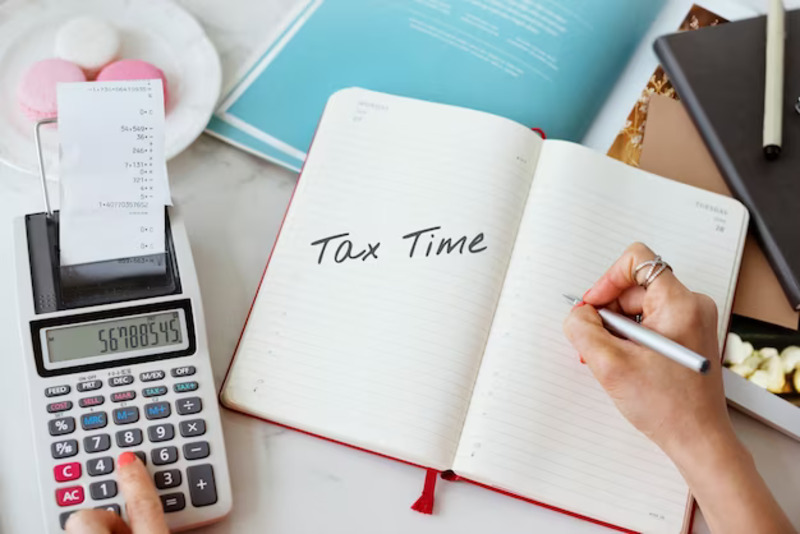A Guide to Understanding Tax Rules for Airbnb or Vacation Rentals
Dec 16, 2023 By Triston Martin
In today's sharing economy, platforms like Airbnb have revolutionized the way we travel, offering unique and affordable accommodation options across the globe. However, as an Airbnb host or owner of a vacation rental, it's important to note that additional income also brings additional tax implications. This guide aims to provide a comprehensive overview of the tax rules applicable to Airbnb or vacation rentals, ensuring that as a host, you are well-equipped to navigate through these fiscal responsibilities accurately and effectively.
Basics of Tax for Rentals
Before diving into the specifics of tax rules for Airbnb or vacation rentals, it's crucial to understand the basics of taxation for rental income. In general, any income received from renting out a property is considered taxable and must be reported on your tax return. This includes both short-term rentals through platforms like Airbnb as well as traditional long-term rentals.
Differentiating Between Business and Personal Use
One of the first considerations when it comes to taxation for Airbnb or vacation rentals is whether the rental property is being used for business or personal purposes. This distinction can have a significant impact on your tax obligations and how you report and deduct expenses associated with your rental.
Business Use
If you rent out your property for more than 14 days per year, it is considered a business use and must be reported as such on your tax return. This includes short-term rentals through platforms like Airbnb, as well as traditional long-term rentals.
Personal Use
If you rent out your property for 14 days or less per year and also personally use the property for more than 14 days, it is considered a personal use property. In this case, only the rental income received is taxable and expenses cannot be deducted.
Reporting Rental Income
 All rental income must be reported on your tax return, regardless of the number of days rented or whether it was for business or personal use. This includes both cash and non-cash payments received from guests.
All rental income must be reported on your tax return, regardless of the number of days rented or whether it was for business or personal use. This includes both cash and non-cash payments received from guests.
Form 1040: U.S. Individual Income Tax Return
Form 1040 is the standard federal income tax form used to report an individual's gross income. It's also known as the U.S. Individual Income Tax Return. As an Airbnb host or vacation rental owner, you should report your rental income on Schedule 1, Line 8 of Form 1040.
Form 1099: Miscellaneous Income
Airbnb and other rental platforms may provide you with a Form 1099-K if your account had over 200 reservations and generated over $20,000 in gross earnings during the last tax year. This form is used by the IRS to track payments made to you through third-party network transactions. However, regardless of whether you receive a 1099-K, you are still required to report all rental income.
Form 4562: Depreciation and Amortization
If you use part or all of your property for renting, you may be able to deduct the cost of improvements and depreciation of your property. This is generally done over a period of 27.5 years using Form 4562.
Form 8829: Expenses for Business Use of Your Home
If you use part of your home as a rental and meet certain tax guidelines, you may be eligible to deduct a portion of your home expenses. This could include utilities, insurance, repairs, and depreciation. Form 8829 is used to calculate these expenses.
Tips for Record Keeping and Tax Preparation
 Maintaining accurate and detailed records of your rental income and expenses as a host is an integral aspect of tax preparation. Here are some tips to help you:
Maintaining accurate and detailed records of your rental income and expenses as a host is an integral aspect of tax preparation. Here are some tips to help you:
1.Maintain Separate Bank Accounts
If possible, maintain a distinct bank account for all your rental activities. This can significantly streamline your record-keeping and make it easier to track your rental income and expenses, thereby making tax filing simpler.
2.Track all Income and Expenses
Ensure to document all your rental income and deductible expenses. This includes not only the rental payments but also other forms of income such as charges for additional services. Equally important is to keep track of your expenses related to the rental. Expenses may include cleaning, maintenance, fees paid to rental platforms, and others.
3.Save all Receipts
Always save copies of receipts for any expenses related to your rental activity. This covers everything from utility bills to cleaning service receipts. These receipts are essential for justifying any deductions you claim on your tax return.
4.Understand Depreciation
Depreciation can be a valuable tax tool for Airbnb hosts or vacation rental owners. It allows you to deduct the costs of buying or improving your property over time. However, it's a complex area of tax law, and it's essential to understand it or consult with a tax professional to ensure you're using it correctly.
5.Regularly Review your Records
Regular reviews of your records can help ensure they're accurate and complete, making tax time less stressful. Make it a habit to review your income and expenses on a monthly or quarterly basis.
6.Use Accurate Reporting Forms
Ensure you're using the correct tax forms for reporting your rental income and expenses. The forms you need can vary depending on whether you're considered a business or personal use property.
7.Consider Professional Help
The tax rules for rentals can be complex. If you're unsure about anything, consider consulting a tax professional. They can help ensure you're meeting all your tax responsibilities and taking advantage of any deductions you're entitled to.
Conclusion
Navigating the tax landscape as an Airbnb host or vacation rental owner can be a challenging task, given the myriad income-reporting requirements and potential deductions. However, with a clear understanding of the distinction between business and personal use, the appropriate forms for reporting, and diligent record-keeping habits, this process becomes considerably more manageable. Remember, while this guide provides a comprehensive overview, tax laws are complex and frequently change--therefore, consider seeking professional help to ensure you're in full compliance and maximizing your deductions. Ultimately, being a conscientious and informed host can translate to significant benefits on your tax return.








